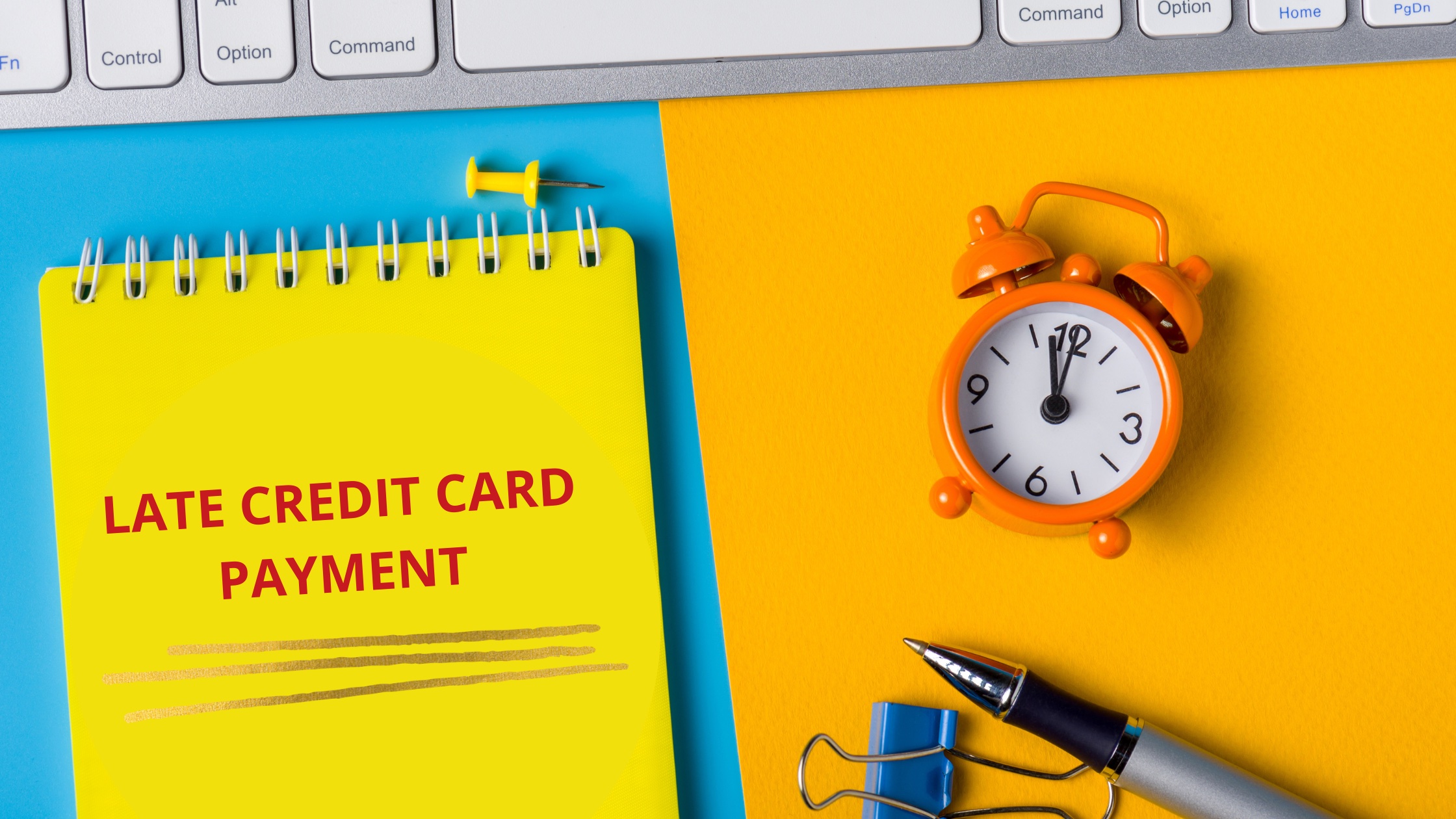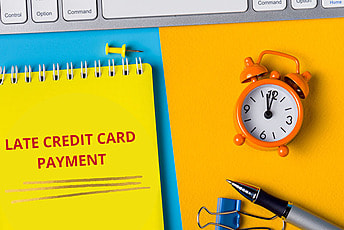The credit card has a plethora of advantages and disadvantages. On the one hand, it can prove to be a boon, and on the other hand, it can be a ban for credit cardholders. There are endless advantages of using a credit card; they offer reward points on spending, convenience in borrowing funds, purchase protection, and hassle-free functioning. A credit card bestows a lifestyle on its members and helps increase their purchasing power.
The benefits of credit cards only come to fruition when they are used responsibly. Handling credit cards carelessly increases the chances of leading credit cardholders into a vicious debt circle. The biggest mistake made by card members is borrowing funds one after the other and not repaying the previous due amount in the Grace period. This article focuses on the consequences of late credit card payments and how you should avoid this from happening throughout the time you own a credit card.

Disadvantages of Late Credit Card Payment
- Higher Rate of Finance Charges: Late payment of credit card bills attracts a higher rate of finance charges, which can shoot up to 49.36% annually. The higher the rate of interest, the higher the chances of falling into a debt spiral.
- Bad Impact on Credit Score: When the credit card due amount is paid late, the credit score is highly impacted. The possibility of getting a loan from the bank decreases, and repeatedly missing the due date can lead to the addition of the term defaulter in the credit card statement.
- Termination of Grace Period: The bank has the sole discretion to terminate your interest-free period in case you have defaulted several times. The grace period is a huge advantage to credit card members since the bank does not charge any interest on the borrowed money during that period. This period can go up to 21 to 51 days, depending on the credit history of the cardholder.
- Late Payment Fee: The late payment fee is charged when the cardholder needs to pay the minimum amount of the due balance before the due date. On crossing the due date, the card members are charged a late payment fee, which differs from bank to bank. It can become burdensome to pay late payment fees along with the finance charge. When paying a minimum amount from the due balance, the bank does not charge any late payment fee.
- Decline in Credit Limit: The spending capacity depends on the credit limit, higher the credit limit higher the spend limit. Repeated default in the due payment can lead to a decline in the credit limit which will ultimately affect the cardholder’s purchasing power.
- Paying only a percentage of the Due Amount: People think that paying the minimum amount from the due balance can help them get less interest. In doing so, the cardholder attracts trouble for the next billing cycle. You are accumulating interest starting from the transaction date and not from the payment due date. So, it is better to clear your dues before the due date.
Ways to Avoid Late Payment
We all know how difficult it is to keep up with reminders in a busy schedule. This certainly can lead you to the pitfalls of the credit market, which can, in a way, make it more challenging to maintain one’s creditworthiness. You can opt for any of the choices given below to pay the due amount without causing any sort of distress in your life.
- Make Advance Payment: This option can benefit credit cardholders. If you have funds available, it is best to make the payment in advance so that you don’t have to worry about the due date and the finance charges.
- Set-up Reminder: You can set up reminders on your phone, which makes it easier for you to keep tabs on your payment due date. It’s better to set a reminder 3-4 days before the due date so that you can pay off the due amount swiftly.
- Auto-Pay Option: One can contact the bank either by calling the customer care helpline number or sending a mail to opt for the ‘Auto-Pay’ option or visiting the bank’s branch. When one opts for the ‘Auto-Pay’ option, the bank will deduct the due amount on a specific date, reducing the chance of missing the payment to zero. The auto-pay option is by far the best option to go for.
- Payment due date: If you own multiple credit cards, you can call the bank and change the payment due dates to one for all your credit cards, or you can select one week in which all the due payments of each credit card can be paid off.
- Use Third-Party Apps: You can also use third-party apps that store all the information about your credit card. Even if you are a multiple credit cardholder, apps like Cred and CheQ help you manage all your credit cards in one place and pay your credit card bil
Suggested Read: Should You Automate Your Credit Card Payment?
Bottom line
When it comes to credit card payments, due care is needed; otherwise, it can bring a lot of worries and troubles to the table. Frequently, defaulting on the payment due date can lead to double charges: the first one is the interest rate, and the second one is a late fee. Non-payment of credit card bills can adversely affect your creditworthiness, which will make it difficult for you to get any loan or credit card in the future. Your credit score can worsen to the point that the financial institutions, after reviewing your credit score, can reject your loan application. If you do not repay the due balance, then the banks can take rigorous steps against the defaulters, and one can face legal proceedings as well. Our suggestion to all our readers is to use your credit cards responsibly and pay all your credit card bills on time.









